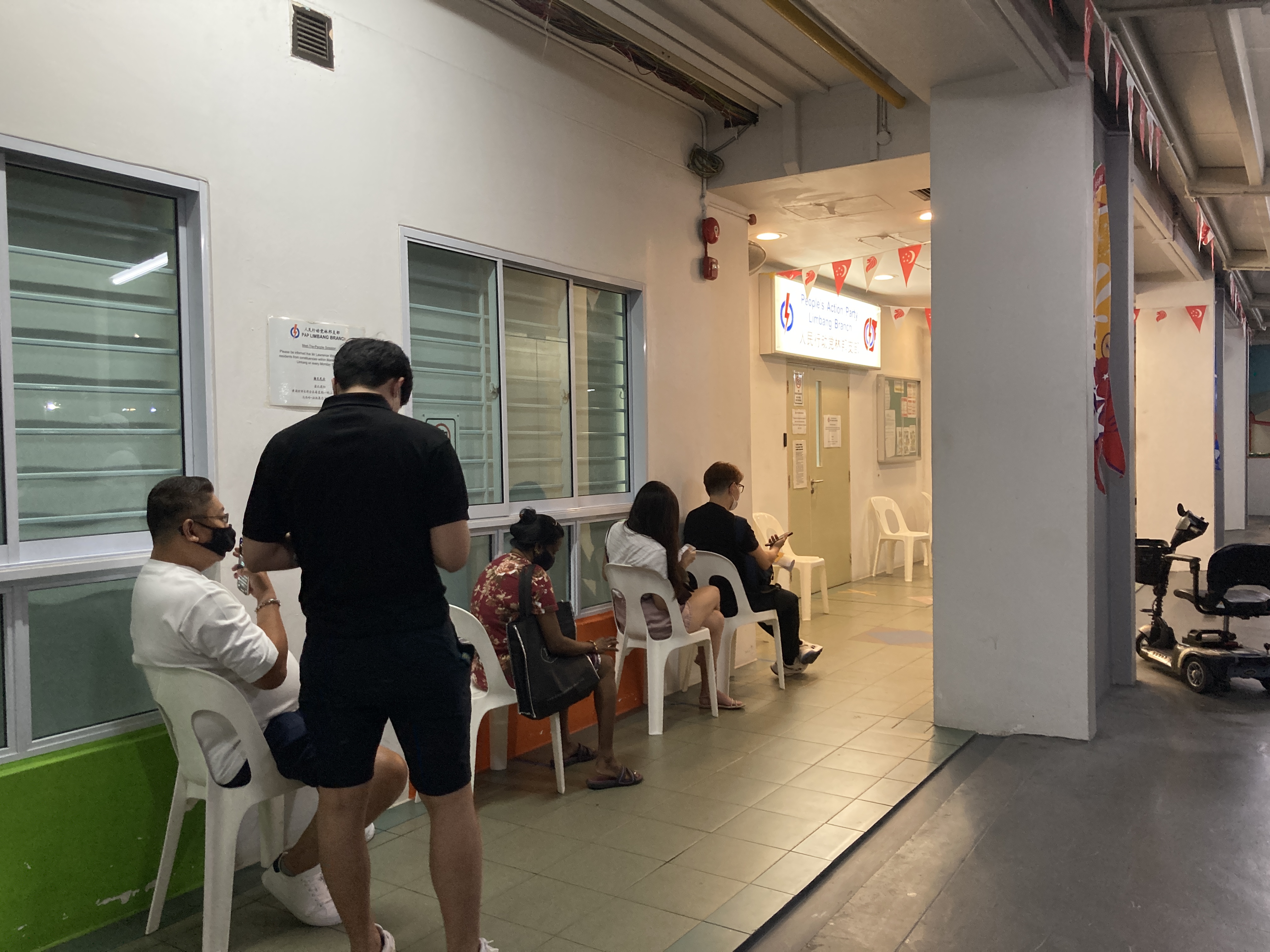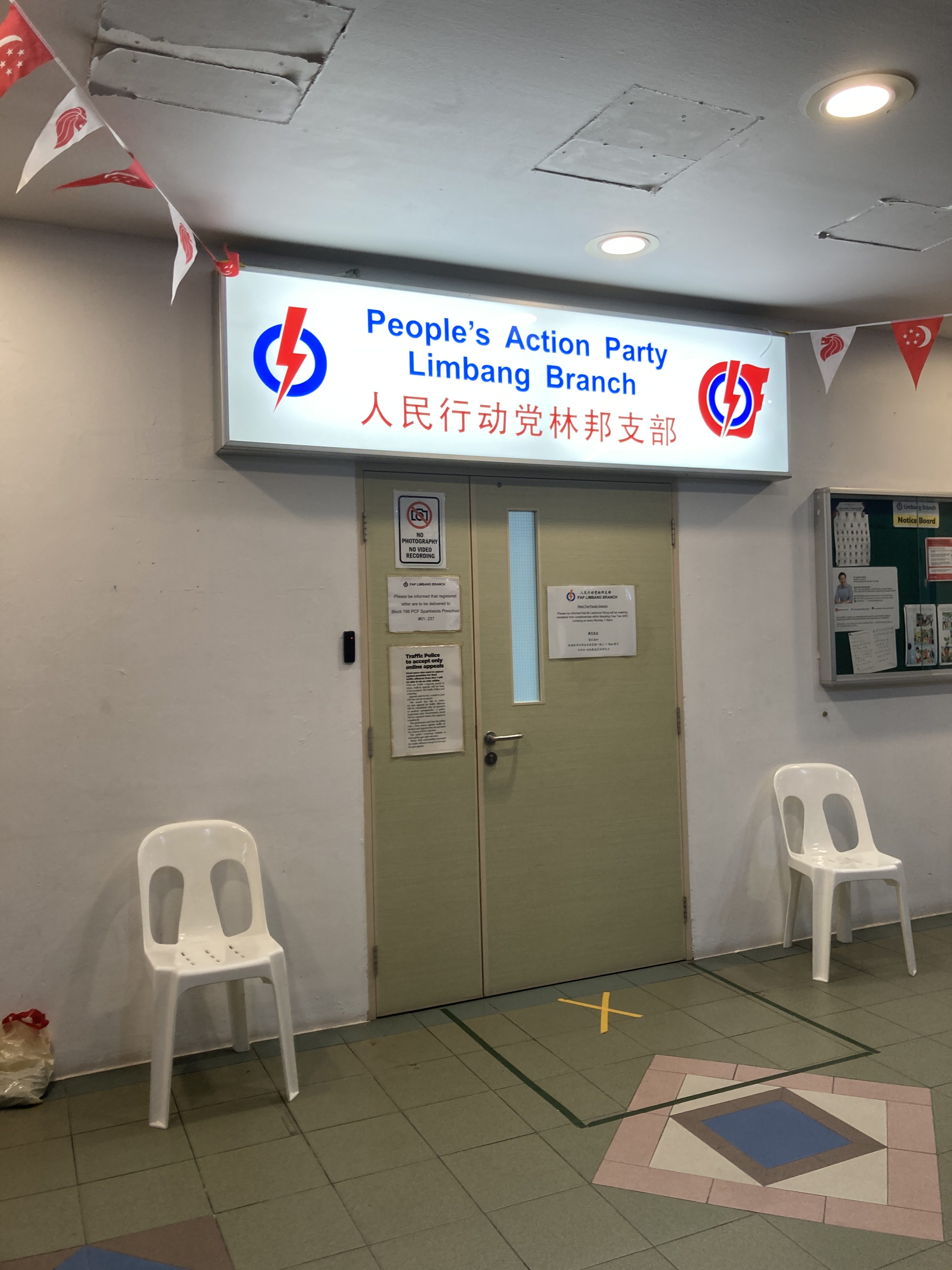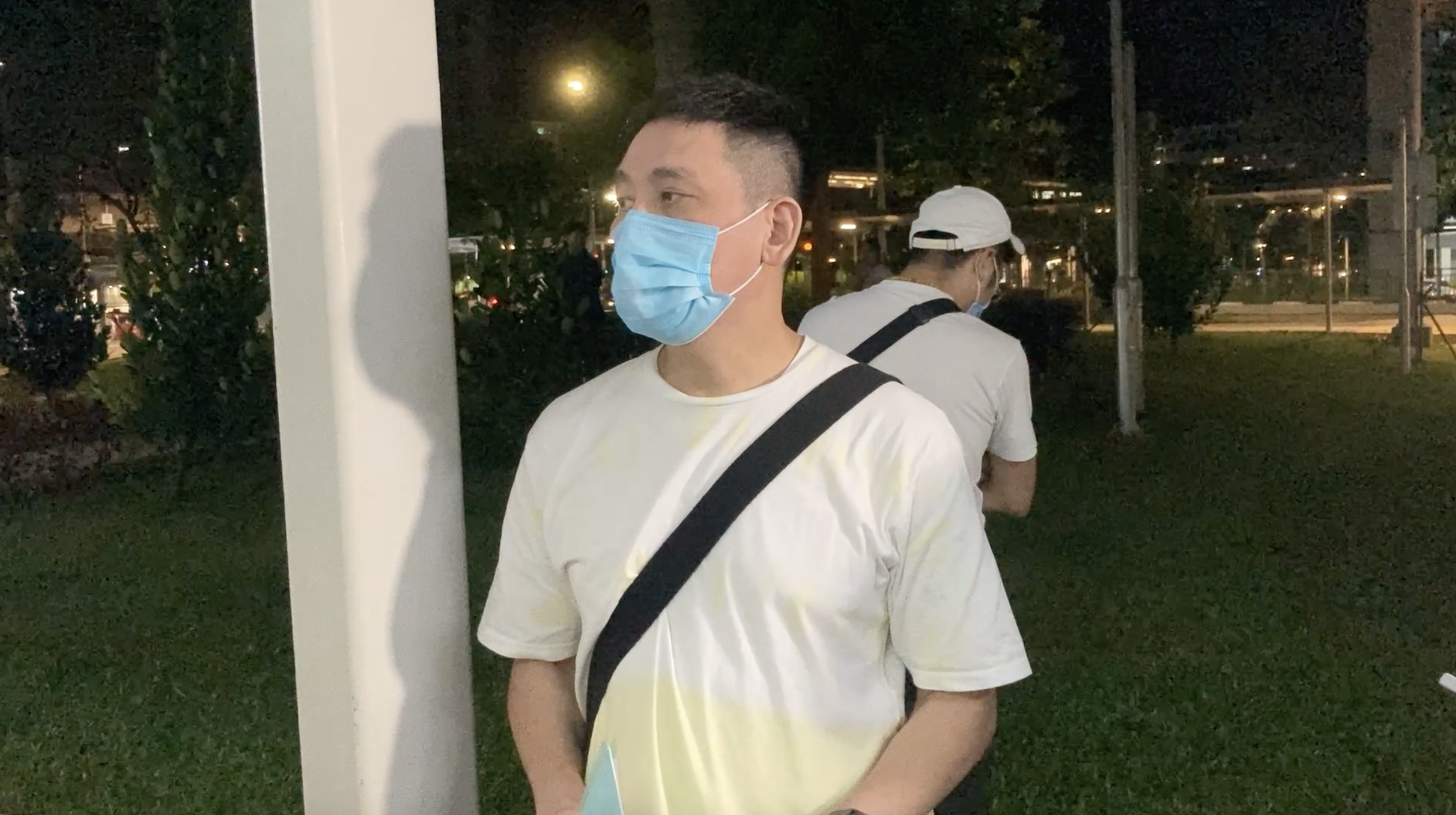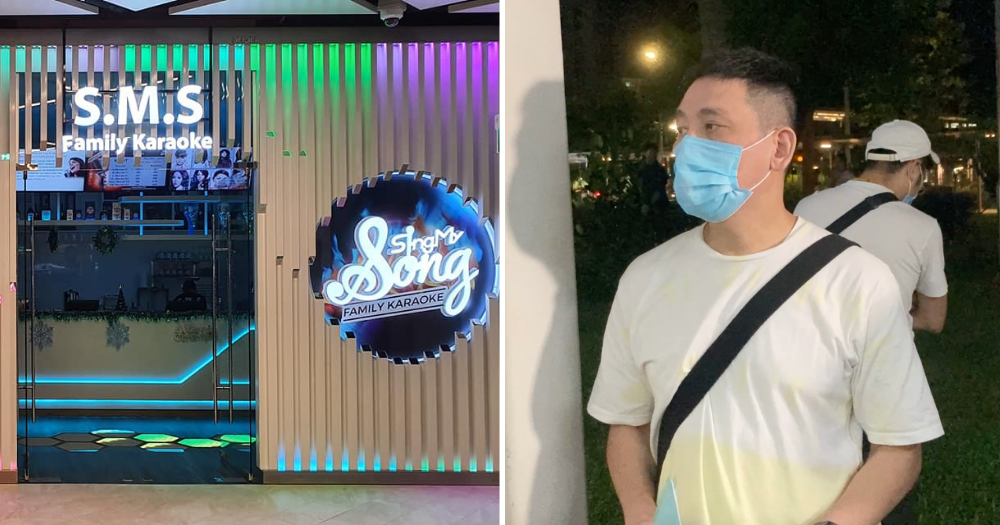Follow us on Telegram for the latest updates: https://t.me/mothershipsg
As Singapore's vaccination rate grows steadily and the economy gradually reopens — a slew of Covid-19 restrictions were eased in early August allowing people to dine in and other businesses like gyms and fitness studios to operate again — one can say that a sense of normalcy has returned.
For most people in Singapore, that is.
Singapore's entertainment industry is still in shambles, and for the many family karaoke operators here, the indefinite nightmare brought about by the pandemic is far from over.
In their last bid to fight for survival, several KTV operators crafted an appeal letter to request for a reopening on September 15, which they sent to their Members of Parliament (MPs), these include the Multi-Ministry Taskforce co-chairs Gan Kim Yong, Lawrence Wong, and Ong Ye Kung.
Hoping for some clarity
Since March 2020, all nightlife establishments were not permitted to operate.
In October 2020, selected nightlife establishments including family KTVs were allowed to pivot their business to other permissible activities, should they receive an approval from the authorities to do so.
However, in the span of time from October 2020 to July 2021, family KTVs have been hard hit by the fluctuating number of Covid-19 cases, forcing them to open and close several times.
Once again on July 16, the government announced that all pivoted nightlife establishments, numbering around 400, would be suspended for two weeks due to the outbreak of the KTV Covid-19 cluster.
Family KTV operators like Frank Per, owner of Sing My Song Family Karaoke at Paya Lebar Quarter, said they were at their wits' end.
I met Per on Aug. 30 at Choa Chu Kang, where he was queuing to meet the Finance Minister and MP for Marsiling-Yew Tee GRC Lawrence Wong at his Meet-the-People session (MPS).
 Photo by Ashley Tan
Photo by Ashley Tan
Per had prepared a detailed letter of appeal addressed to Wong, a copy of which he handed to me, listing out his predicament as a family KTV operator.
As 80 per cent of Singapore's population has been vaccinated, Per and other operators have taken it as a good sign and time for them to make an appeal.
All Per wanted was some clarification on whether family KTVs will be allowed to reopen in the next three months, or at the very least, an update on the direction Singapore's entertainment industry can head towards.
He also wants to propose for a pilot for the reopening of family KTVs, possibly with small groups being allowed in each room and safe management measures in place such as replacing microphone covers.
"Most of us need to exit also, we can't just [continue] waiting for so long," he said. When asked how long his business could last, Per said it was "to the limit already".
Besides reopening, the KTV operators also hope to have "a clear exit path" with protection against potential lawsuits from landlords and stakeholders as a form of short-term support to the nightlife operators.
Back at Choa Chu Kang, Per managed to rally a small group of family KTV operators, all of whom were looking for a mere hint as to when things might look up for their business.
 The owners of family KTVs in the midst of discussion outside the MPS location with a grassroots member. Photo by Ashley Tan
The owners of family KTVs in the midst of discussion outside the MPS location with a grassroots member. Photo by Ashley Tan
Why pivoting business is not feasible to some?
Steven Ng was one of these aggrieved family KTV operators gathered at Choa Chu Kang. He has closed his business, K Voice Karaoke at 321 Clementi, since the end of 2020.
Despite attempts to pivot to selling food in Nov. 2020, Ng gave up after two months.
"F&B is not my forte. I'm not designed for it, otherwise I would have started a [F&B] business long time back," he said.
Additionally, he added that the location of his karaoke outlet, on the upper floors of a tiny neighbourhood mall situated next to the bustling Clementi 448 Market and Food Centre and other coffee shops, was simply not "favourable" for selling food.
After all, who would visit the place for standard food fare when they can find hawkers nearby who have been specialising in a dish and plying the trade for years?
 Steven Ng, owner of K Voice Karaoke. Photo by Ashley Tan
Steven Ng, owner of K Voice Karaoke. Photo by Ashley Tan
Both Ng and Per make it clear that while they are appreciative of the government allowing them to pivot their business and generate some revenue, it's evident that the move is merely a stopgap and unfeasible in the long run.
Thus far, Ng has had zero revenue from the karaoke outlet since its closure. Per is also in the same boat, since the suspension in July, and both men have had no income during these periods of closure.
Per shared that he is currently facing mounting debt, and that even if his business is closed, he still foots the bill for rent, which is over S$30,000 per month.
Although the 0.5 months of rental relief KTV operators received helped marginally, Per says it is simply not enough for them to put food on the table.
New restrictions tough for operators
KTV operators have also had to contend with stringent and evolving Covid-19 restrictions.
In end-July after the two week suspension, the government announced that pivoted nightlife establishments will be able to reopen — on the condition that they adhere to additional safe management measures on top of those imposed on F&B outlets.
These measures include installing CCTV cameras throughout the premises, as well as locking all private rooms, and using only the main hall for F&B operations.
Businesses must also remain completely closed until they pass inspections and receive a conditional permit.
These "onerous requirements" — as Lau, the owner of Romance KTV Pub at Serangoon Garden Way, described — has proven a host of problems for KTV operators.
Not all of these karaoke outlets have a main hall in their premises, and having to lock all the rooms essentially means they are left with no space to even operate their pivoted business out of, which is the case for Per.
According to Lau, Ng and Per, the inspection process is also a tedious one.
Inspectors do not arrive the next day once the relevant documents have been submitted. Ng shared that some KTV operators have waited three weeks for inspection, but have not received any answer.
Said Ng:
"It's very challenging for a lot of [other KTV operators], already business is down so much, but they have to spend money again to meet the requirements from the authorities, then they are allowed. But nobody guarantee whether they can pass the inspection."
Unfair to have blanket treatment
Another main gripe is the lumping together of family KTVs with other nightclubs and KTV lounges that offer illicit services.
The KTV operators at Choa Chu Kang find the blanket suspension of all KTVs unfair, and considered the KTVs that carried out errant actions as "black sheep" in the industry.
In his appeal letter, Per described the government's actions as "discriminatory", stating that these rotten apples continue to take advantage of loopholes and operate illegally, while 'cleaner' family KTVs are "criminalis[ed]" and forced to shut down.
"Every industry has black sheep, but to penalise all [KTVs], it's a bit harsh. You cannot blame the whole industry for this problem," Ng said.
Lau agreed, tacking on that he felt the recent suspension and subsequent safe management restrictions were "made in haste".
"Let's say somebody breached SMM in a hawker centre. Do we shut down the whole country's hawker centres? We shouldn't. But we should punish the person who breach it."
This distinction between family KTVs and nightclubs and lounges is something Per and other family KTV operators hoped to bring up to Wong during the MPS, and hope the government can consider in future policies.
Government still looking into the matter as the industry has "high-risk"
After nearly 18 months of on-and-off closures and digging into shrinking savings, to Per, meeting Wong is a last ditch effort for operators' voices to be heard.
Said Per in desperation:
"If you tell us not to sell alcohol, we can don't sell alcohol. We just want to open to let people sing. You say five vaccinated people cannot, what about two people? If two people also cannot, how about just give us one person? We can accommodate to all this, but to totally shut down all KTVs... We also need to eat, our employees also have a family to raise, we can't ask them to waste their time and wait with us."
It was around 8:45pm when Per and Caine Poon, the owner of Cash Studio Family Karaoke, went in to meet Wong.
 Photo by Ashley Tan
Photo by Ashley Tan
After 45 minutes speaking to Wong, the duo shared that Wong told them that the government is still looking into the issue as this is a "high-risk" industry.
Again, operators were urged to either pivot their business or exit the industry, which could be a faster way to cut losses during such uncertain times.
The response from Wong was not entirely unexpected, Shane Cheng, a KTV operator and representative from the Singapore Entertainment Affiliation (SEA) said.
At the very least, Cheng felt that this meeting had hopefully helped to bring about awareness to the authorities that "this industry still exists", adding that the SEA would continue to work with authorities to find common ground.
The KTV operators have also submitted an appeal to Minister for Trade and Industry Gan Kim Yong.
The Ministry's reply on Sep. 2, according to Per, was similar to that of Wong's, stating that further reopening of the economy, including the nightlife sector, "will continue to be done in a gradual and calibrated manner, factoring in public health considerations and any new developments".
These restrictions on KTV outlets will be reviewed if the public health situation remains stable.
"We hope to provide new updates in due course," MTI stated.
In response to Mothership's queries, MTI and the Ministry of Home Affairs said in a joint statement on Sep. 10:
"The Ministry of Trade and Industry has kept in contact with the nightlife industry throughout the pandemic and has supported them where possible amidst the challenges posed by Covid-19. As there is a high risk of Covid-19 transmission in nightlife activities, including karaoke singing, they have not been permitted to operate since March 2020. We are actively reviewing the situation and exploring ways to pilot their reopening in a safe manner.
The Government has provided support to businesses through various schemes. In November 2020, we rolled out the pivot and exit support packages – operators who decide to pivot their business can apply for a grant of up to S$50,000 to defray costs incurred during the pivoting process; those who wish to exit the industry may apply for an ex-gratia payment of S$30,000 to defray the costs associated with winding up their business. The Government has also provided support through the Jobs Support Scheme to help businesses during this period of economic uncertainty.
We thank businesses for their cooperation and seek their understanding that the further reopening of the economy, including the KTV and nightlife industry, will continue to be done in a gradual and calibrated manner which safeguards public health."
Back in limbo
For the other KTV operators, the conclusion of the MPS meeting with Wong was yet another nail in the coffin, throwing them back into the state of limbo they have been stuck in.
Although operators will be given an exit grant of S$30,000, Per said it is not sufficient to cover his losses.
For Ng and Lau, who rather unfortunately, opened their karaoke outlets in 2019, they have not been able to recoup their start up capital till now.
"Of course it's very sad," Per said of the response from the MPS. "If there's no choice, we can't think of any other solution to pivot to, to sustain [us through] this difficult time, I think we might be giving up the unit."
 Frank Per, owner of Sing My Song Family Karaoke. Photo by Ashley Tan
Frank Per, owner of Sing My Song Family Karaoke. Photo by Ashley Tan
As of now, both Per and Ng are unsure how to move forward. The latter expressed his disappointment, opining that the response was a "big contrast" from the positive outlook the vaccination rate shows and Prime Minister Lee Hsien Loong put forth in his National Day Rally speech.
For Lau, Wong's response does not matter — he has already decided to throw in the towel.
He added that he is already in talks with his landlord to find a replacement tenant.
"I really can't hang on," he said. Nevertheless, he added that there was a possibility of him returning to the industry in the future when there is "more clarity".
Continue hoping
Running a business isn't like a tap, which one can turn on and off as and when, Ng explained. Opening and closing their business entails its own set of costs each time.
"The reason why we hang on so long is because it's really challenging to come back to business.
We are small time businesses, not a conglomerate, any time we can pump in money and do again."
Perhaps it is this mindset, or simply an innate love borne out of starting something of your own and watching it grow, that the family KTV operators still seem to hold a tiny glimmer of hope, despite the less than favourable response from the MPS.
As the MPS ends and people start to disperse, Per, Poon and Cheng exchange remarks about next steps. Something they agree on tackling next and bringing up to the authorities is the blanket classification of family KTVs alongside nightclubs.
In the meantime though, they will continue hanging on to the words of every minister's Covid-19-related speech, as they have done so for the past year, and hoping for the day where they can welcome people to belt out songs at their premises again.
Follow and listen to our podcast here
Top photo from Sing My Song Family Karaoke / FB and Ashley Tan
If you like what you read, follow us on Facebook, Instagram, Twitter and Telegram to get the latest updates.
